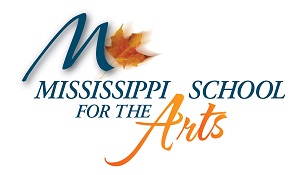Socialization: Another one of those terms tossed around, debated, and assumed to be something "for good", often without any definition. Well, my training in philosophy will not allow me to discuss a term without first defining it. So, here goes.
"Socialization, also spelled socialisation, is a term used by sociologists, social psychologists, anthropologists, political scientists and educationalists to refer to the lifelong process of inheriting and disseminating norms, customs and ideologies, providing an individual with the skills and habits necessary for participating within his or her own society." (Wikipedia.org)
I like this definition because it mentions a lifelong process. Socialization starts from the moment a child is born and introduced to others in a society. That society can be initially as small as a family unit. They gradually learn the routines and patterns of that unit. They then branch out to larger units and continue to grow. My difficulty arises when a person is introduced to a unit which has little or no reference to the society in which the child will eventually have to participate. Let me give an extreme example. Children born in war-torn countries without any stability may not learn the skills of participating in a peacetime society. This has proven to be a significant problem in several parts of the world. So it is important that children learn the skills and habits which will help them to succeed in the world they will inhabit at adulthood.
The most common use of the world "socialization", at least from my perspective of education, is in reference to homeschooling. Parents seeking to homeschool teenagers are warned that the children might not learn to socialize. This is based on the assumption that public high schools are microcosms of the adult world. Let us examine that assumption.
Public School (PS): All members, with a few exceptions (teachers and administrators) are born within a few years of each other.
Real World (RW): Multi-generational and multi-aged in almost all sectors, private and professional.
PS: Members are grouped by age.
RW: Members are grouped by common interest.
PS: There is one dominant culture and all students are pressured into participating or being marginalized.
RW: There are a multitude of cultures (social, professional, athletic) and members select the groups
PS: Members develop special language, habits, customs that are only relevant within that specific culture and are often contrary to the customs of the larger world.
RW: Different habits and customs are developed within the context of participating in the larger world, or not, if that is the preference.
Okay, so my bias is definitely making itself known and perhaps I am not being entirely fair. After all, students still join other groups and have home lives. My point is that high school is not the place to learn social skills. Those are better learned by participating in the real world. I will not repeat what has been said before about the socialization skills of homeschooled children. This is a topic which keeps repeatedly raising its head, even though it has been answered numerous times. To read some of those answers I refer you to the following link : http://ontariohomeschool.org/socialization/
Children will socialize just fine. They don't need to attend a public school to do so. In fact, they will learn better socializing skills by visiting their grandparents or helping a neighbour rake the yard. For anyone who confuses socialization with the ability to be popular, you might want to read the following report from Time. (Especially the part about "popular" kids!)
http://ideas.time.com/2013/11/18/does-high-school-determine-the-rest-of-your-life/
I am not against children attending public high schools but send them for academic reasons, not because they will learn social skills to help them later in life. You're looking in the wrong place.

No comments:
Post a Comment